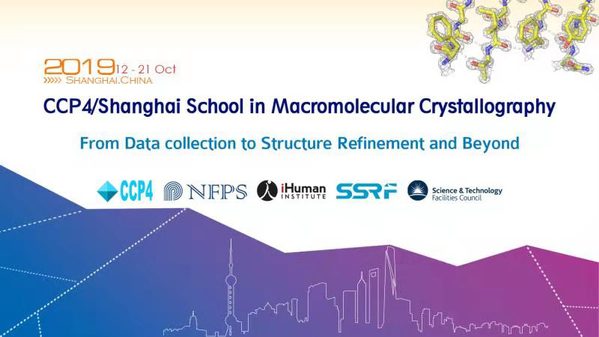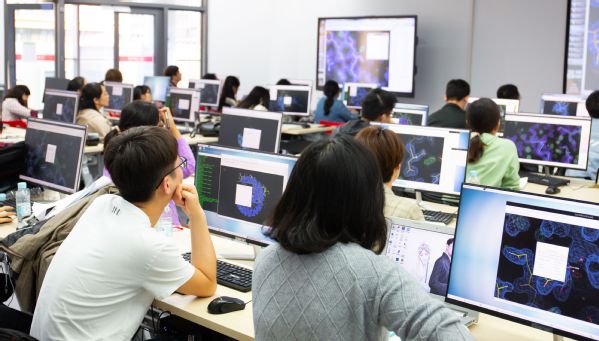From Oct 12th to Oct 21th, the CCP4/Shanghai School in Macromolecular Crystallography: From Data Collection to Structure Refinement and Beyond was held at National Facility for Protein Science Shanghai (NFPS) and ShanghaiTech University. Jointly organized by Collaborative Computational Project No. 4 Software for Macromolecule X-Ray Crystallography (CCP4), NFPS, iHuman Institute of ShanghaiTech and Shanghai Synchrotron Radiation Facility (SSRF), the workshop attracted more than 200 graduate students, postdoctoral researchers and young scientists in the area of structural biology from both academia and industry in China and abroad.
CCP4 offers an advanced, integrated suite of programs that allows researchers to determine macromolecular structures by X-ray crystallography, and other biophysical techniques. 17 experts from CCP4, Australian Synchrotron, CSIC, Diamond Light Source, EMBL, Global Phasing, Karolinska Institutet, Leiden University, MRC LMB, NCI, RIKEN Spring-8 and Universitat Konstanz gave inspiring and in-depth lectures, as well as data collection workshop and crystallographic computation workshop.
Lectures dedicated to crystallographic data collection and processing were followed by data collected at the following beamlines at SSRF. Software programs and packages including ARCIMBOLDO, ARP/wARP, Autorickshaw, CCP4, Coot, DIALS, Global Phasing software, iMOSFLM, REFMAC, SHELX, XDS, etc. were presented in the Cloud Classroom of ShanghaiTech. Several of the leading MX software developers from around the world presented lectures and tutorials and helped the attendees during problem-solving sessions. A crystallographic computation workshop covered all aspects of the structure solution process in macromolecular crystallography, starting from data processing, through phasing and refinement, and ending with validation and deposition as well as molecular graphics and bioinformatics.
The workshop and lectures enhanced the grasp of fundamental crystallographic concepts and in-depth teaching of the modern crystallographic software. It provides a great opportunity for students and researchers to learn more about crystallography and structural biology and promotes the development and application of X-ray crystallography and CCP4 software in protein research in China.



